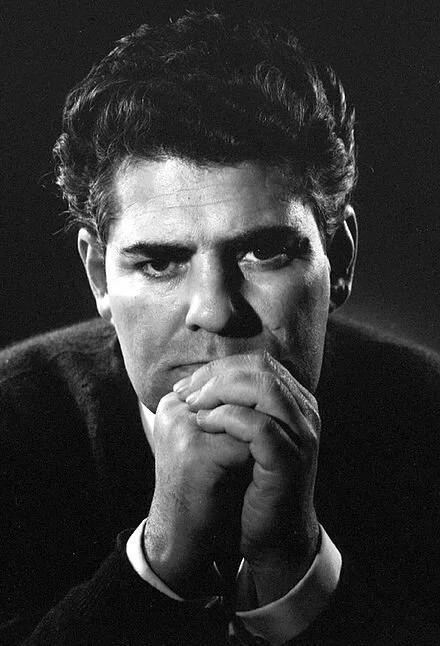Ahmad Shamlou (1925-2000) is an Iranian poet and journalist. Nominated for the Nobel Prize in 1984, Shamlou is one of Iran’s most revered modern poets. A prominent leader of Iran’s modern literary movement. he is the author of over 17 volumes of poetry.
A political activist in his youth, Shamlou was imprisoned by the Shah’s regime. Later, he became a journalist and began to write poetry. He developed his own distinct style, expanding the metrical and verbal resources of poetry.
Shamlou believed that poetry should give voice to the language of the people, reflecting their dreams and suffering.
His poetic vision drew on western modernist poetic concepts which contributed to the modern transformation of Iranian poetry from its classical form.
Greatest Wish Song
If freedom could sing a song
small
as the throat of a bird,
nowhere would a wall remain crumbled.
It would not take many years
to comprehend
that ruins are a sign
of human absence,
that human presence
creates life.
--
Like a wound
that drips blood,
life-long;
Like a wound
beating with pain
all one’s life;
Opening eyes to the world
to a howl,
disappearing from it
with hatred.
The great absence was this.
The story of ruin was this.
--
If freedom could sing a song,
tiny,
tinier than a bird’s throat.
(translated by Sholeh Wolpé)
Permission for publication granted by Alef-Bamdad Institute and Shamlou’s official website
This translation first appeared in Language for a New Century—Contemporary Poetry from the Middle East, Asia, and Beyond (WW Norton)
Lovingly
He who says I love you
is a mournful minstrel
who has lost his song.
If only love
had a tongue to speak.
A thousand happy larks
fly in your eyes,
a thousand canaries
fall silent in my throat.
If only love
had a tongue to speak.
He who says I love you
is the night’s blue heart
searching for moonlight.
If only love
had a tongue to speak.
A thousand laughing suns
in your footsteps,
a thousand weeping stars
in my desire.
If only love could speak.
(translated by Sholeh Wolpé) First published in The Arkansas International
Permission for publication granted by Alef-Bamdad Institute and Shamlou’s official website
In This Dead-End Road
They sniff your breath
lest you have said: I love you.
They sniff your heart--
(such strange times, my sweet)
and they flog love
at every checkpoint.
We must hide love in the backroom.
In the cold of this dead-end crooked road
they stoke their pyres
with our poems and songs.
Don’t risk thinking,
for these are strange times, my sweet.
The man who beats at the door
in the nadir of night,
has come to kill the lamp.
We must hide light in the backroom.
Those are butchers in passageways
with their chopping blocks
and bloodies cleavers.
(Such strange times, my sweet)
They carve smiles off faces
and sever songs from mouths.
We must hide pleasure in the back room.
Canaries are barbequed
on flames of lilies and jasmines…
(such strange times, my sweet)
and the devil, drunk on victory,
feasts at the table set for our wake.
We must hide God in the back room.
(translated by Sholeh Wolpé) From: The Forbidden—Poems from Iran and Its Exiles
Permission for publication granted by Alef-Bamdad Institute and Shamlou’s official website


